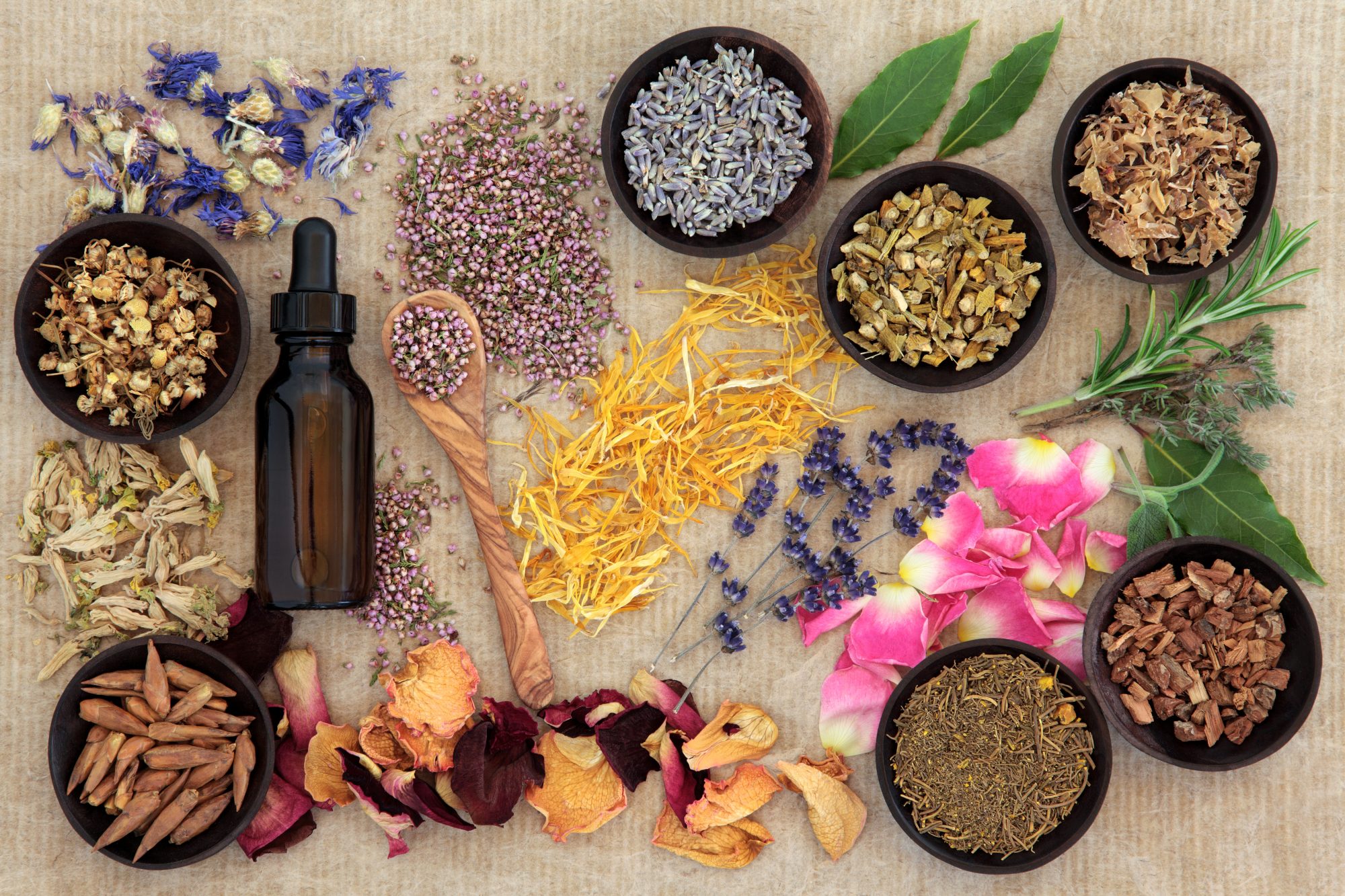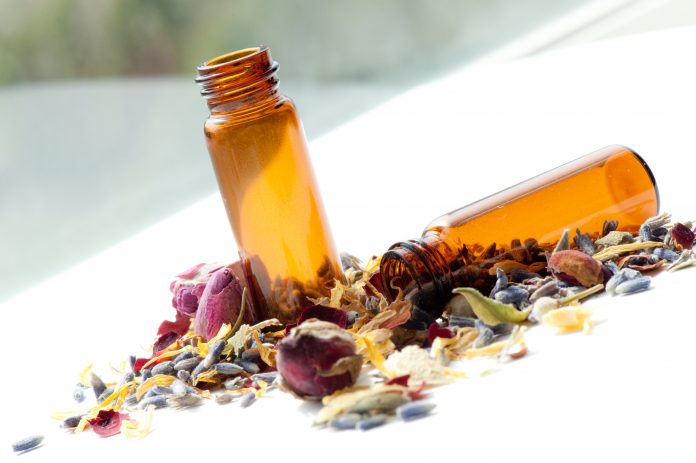Essential oils have been used for centuries for their medicinal properties. However, scientists have only now started studying and exploring the potential benefits of essential oils
In the process, science has separated fact from fiction, verifying many known benefits of essential oil, identifying potential complications, and nailing the coffin on other perceived benefits.
That is why essential oils are becoming increasingly popular tools to address mental and physical health. Essential oils can be used aromatically, topically, or internally to achieve these benefits. According to the National Institutes of Health, some of the most common essential oils used for health purposes include Mint, Lavender, Bergamont, and Tea Tree Oil.
What are essential oils?
Essential oils are the different natural oils made by pressing or steaming a plant’s stem, flowers, or leaves to extract the compound that produces the fragrance. Due to their unique aroma, they provide benefits when incorporated into holistic healing treatments, including aromatherapy, also referred to as essential oil therapy. Essential oils can positively impact your health and well-being when used safely.
Benefits of mint
1. May help with depression and anxiety
Mint essential oil has a refreshing, cooling, and uplifting aroma that can help to improve mood and reduce feelings of depression and anxiety. In a study published in the journal Phytotherapy Research, participants who inhaled mint essential oil for 15 minutes felt more alert and less fatigued than those who did not inhale the oil.
2. Alleviates respiratory symptoms
If you suffer from respiratory conditions such as asthma or allergies, the essential oil from mint may help to alleviate your symptoms. The cooling and refreshing mint aroma can help open the airways and relieve congestion. This oil can also help to soothe coughing and other respiratory symptoms.
3. May fight fatigue
Fatigue is a common problem that can lead to feelings of lethargy and exhaustion. Diffused mint oil can help to improve energy levels and fight fatigue. This is due to mint’s refreshing and uplifting aroma, which can help increase alertness.
4. May help ease headaches
According to recent studies on aroma therapy, essential mint oil helps to ease headaches when applied to temples and foreheads. This is likely due to mint’s cooling and refreshing properties, which can help to soothe the pain.
Benefits of lavender
1. Helps with anxiety and depression
Being anxious or depressed can wreak havoc on your mental and physical health. Fortunately, the essential oils from lavender are an effective supplemental treatment for anxiety and depression. In a study published in the journal Frontiers in Psychology, researchers found that inhaling diffused lavender oil significantly reduced symptoms of anxiety and depression in participants.
2. Insomnia
If you struggle with insomnia, lavender oil may be able to help. Studies have shown that lavender oil can improve sleep quality and quantity. Researchers found that participants who used a lavender oil diffuser before bed experienced significantly better sleep than those who didn’t.
Benefits of bergamot
1. Reduces cholesterol levels
According to a study published in the Journal of Lipid Research, Bergamot essential oil significantly reduced cholesterol levels in rats. The rats treated with Bergamont had lowered total cholesterol and LDL (“bad”) cholesterol levels. This is promising news for those looking to improve their cardiovascular health.
2. Improves digestion
Bergamot essential oils improve digestion by stimulating bile production, which breaks down fats in the digestive system. Many people report that inhaling diffused Bergamot helps soothe their digestive system.
3. Schizophrenia relief
Studies show that bergamot is effective in treating symptoms of schizophrenia. A European Psychiatry study found that bergamot significantly reduced symptoms of schizophrenia, including delusions, hallucinations, and overall cognitive health. The participants in the study treated with bergamot showed a marked improvement in their mental awareness and ability.
Benefits of tea tree oil
1. Antiseptic for minor cuts and scrapes
Tea tree oil has antiseptic properties, which makes it an effective treatment for minor cuts and scrapes. The oil can help to clean the wound and prevent infection. Its anti-inflammatory properties can reduce swelling and redness. Apply a small amount of tea tree oil to the affected area with a cotton swab.
2. Treating acne
Unless you are fortunate, if you’ve gone through puberty, you’ve had some personal experience with acne. Tea tree oil has antibacterial properties that can help to kill the bacteria that cause acne. Many people find that applying an acne cream or gel infused with tea tree oil helps to reduce the number and severity of breakouts.
4. Treating athlete’s foot
Many people suffer from athlete’s foot, a condition that causes red, itchy, and scaly skin on the feet. Tea tree oil has antifungal properties that make it an effective treatment for athlete’s foot. Those who have athlete’s foot can apply a tea tree oil cream or ointment to the affected area. You may also find that adding a few drops of tea tree oil to your bath water helps to relieve symptoms.

How to incorporate aroma therapy into your daily life
There are several ways you can incorporate essential oils into your daily life. Diffusers disperse the essential oils into the air, where you inhale them. This is a great way to enjoy the benefits of essential oils without having to apply them directly to your skin. Other methods of using essential oils include atomizers, sprays, creams, and oil concentrates.
Using essential oils safely
Essential oils are not snake oil, miracles, or cure-alls; they come with some risks. Firstly, some oils are not safe for your pets and children. For example, Mint and Tea Tree Oil can harm your cat and dog.
Some oils can cause skin irritation in people with sensitive skin. This adverse reaction most often occurs when concentrated essential oils make direct or prolonged contact with sensitive skin. So if you know you have sensitive skin, consult a dermatologist or medical professional before using essential oils.
Additionally, most essential oils, in their diluted form, are safe for use around children. However, essential oils can be toxic and potentially dangerous in concentrated forms. This is because children’s skin is thinner, and their organs are smaller and less developed.
For this reason, parents keep these oils out of their pets and children’s reach. You should reserve them in a cupboard or a lockable case. You should also consult professional healthcare providers before using these oils around infants.
Why are they so popular?
Essential oils are popular because of their physical, mental, and “spiritual” health benefits. Common treatments include relieving pain, reducing stress, and facilitating quality sleep.
Recent studies reveal that these oils have antibacterial benefits and can help to control the spread of pathogens related to airborne diseases in open and enclosed settings.
Essential oils’ aromatherapy applications have also contributed to their popularity in their global market. The increased prevalence of work-from-home culture has motivated many people to look for products that will help them improve their physical and psychological wellness and create a conducive and relaxing working environment in their homes.
When choosing essential oils, you should consider various factors, such as quality and purity. It is crucial to note that these oils’ impact depends mainly on proper use and individual circumstance.
Efficacy of essential oils
While lavender reduces stress and anxiety, huffing it is not a substitute for maintaining a healthy work/life balance. Bergamot can help digestion, but it won’t fix the mistake of eating four extra spicy chilli dogs with extra jalapeños.
Consult your physician before incorporating oils into your health regimen. Most doctors will warn you about potential adverse side effects and essential oils’ limited benefits. It’s important to remember, even with the available scientific evidence, essential oils are a supplement to healthy living and effective medicine.
This piece was provided by Ck Harrington who is a content writer for Doctor Aromas












Melissa essential oil is also beneficial for relaxing people who have dementia. If you mix it with lavender, it can reduce their agitation and confusion and confusion and help them to sleep better.